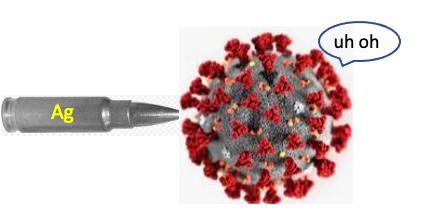Not in our wildest imagination would anyone have thought that we would have two 90+% effective COVID vaccines by mid-November. Most vaccine experts were estimating 50%, maybe 70% if everything went right. Wow!
Keep in mind that even though things look very good there are still vitally important questions that need to be answered before life goes back to "normal." Here are some of them:
- Is there any protection for people who were vaccinated but still got sick?
Assuming the data hold up after trials are completed, 5-10% of people who were vaccinated still caught the virus. But what happened to them? Were the disease symptoms less severe? What were the rates of hospitalization, need for ventilators, and deaths compared to what is happening now? This is critically important because if the vaccines keep people out of the hospital even if it doesn't entirely protect them, this too is a game-changer.
“I had been saying I would be satisfied with a 75 percent effective vaccine. Aspirationally, you would like to see 90, 95 percent, but I wasn’t expecting it. I thought we’d be good, but 94.5 percent is very impressive.”
Dr. Anthony Fauci
- Duration
How long will the protection last? It will take a monumental effort to manufacture, distribute, and administer these vaccines. Even though the Moderna vaccine can be stored in normal freezers (25oF) rather than the -100oF required for the Pfizer vaccine, it still needs to be kept cold. And both vaccines require two doses.
If these vaccines last a lifetime (unlikely) as smallpox vaccines did, this will make life much easier for drug companies. But if the protection is three months we are looking at a nightmare scenario for the drug companies, distributors, healthcare centers, and patients. Are people really going to take 8 shots per year? It is difficult enough to get people to take one flu shot every year.
At this point, there is no answer. We will have to wait, well, two years to see if the vaccine is still protective after two years. The duration of protection is an enormous issue; it will determine the real utility of the vaccines.
- Mutation and resistance
All bacteria and viruses mutate causing resistant strains. Unfortunately, RNA viruses are more prone to mutation than DNA viruses. As luck would have it, SARS-CoV-2 is an RNA virus, just like influenza. But even though SARS-CoV-2 has already mutated to at least six strains, it is not expected to mutate to make the original vaccine ineffective.
- Safety concerns
Although both vaccines have been described as having good safety profiles, tens of thousands of people participated, not billions. Nonetheless, at this point, both vaccines seem to be safe.
"[The] Study enrolled 43,538 participants, with 42% having diverse backgrounds, and no serious safety concerns have been observed; Safety and additional efficacy data continue to be collected."
Pfizer press release 11/9/20
Similarly, Moderna's trials involved 30,000 people and its safety profile seems to also be good.
"Preliminary analysis suggests a broadly consistent safety and efficacy profile across all evaluated subgroups."
Moderna press release, November 16, 2020
5. Long term safety concerns
It is (obviously) impossible for vaccines that have been studied for months to have a long-term safety profile. With millions of people (presumably) receiving these (or other) vaccines, there will be an enormous amount of post-marketing data available.
6. Bottom line
The world really needed a break and it looks like it actually got two. Although there is still much to find out, it would be difficult to find a doctor or scientist who isn't breathing a sigh of relief this week.
If the good news continues and either/both of these vaccines continue to perform well as Phase III trials progress I'll be rolling up my sleeve. But fast.




